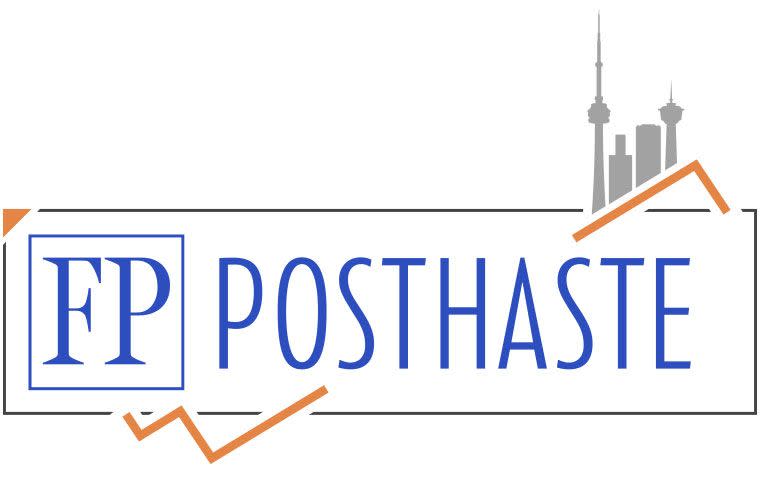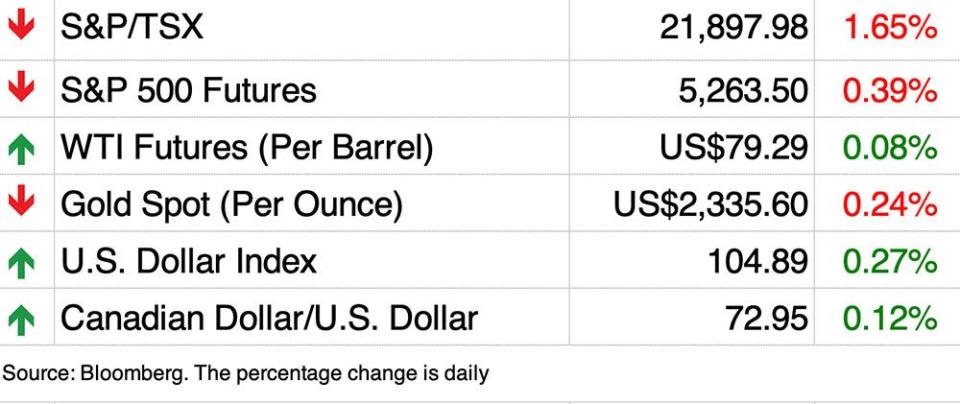Posthaste: Why the Bank of Canada just might hold interest rates again


The Bank of Canada makes its interest rate decision next week and there is still a lot of uncertainty over which way the coin toss will land.
Markets are pricing in about a two-thirds chance of a cut next Wednesday, and economists with most of the Bay Street banks say the same, while acknowledging it’s a close call.
Capital Economics, however, has changed its forecast and now thinks the central bank will hold fire until July.
“While it will be a very close call, the recent resilience of GDP and employment growth leads us to think that the bank will err on the side of caution by waiting until July,” said Stephen Brown, deputy chief North American economist.
That change is significant because Capital at one point predicted the central bank could cut as early as March, a more dovish call than most economists.
Brown said this time last month Capital believed the bank would cut on June 5, and since then in some ways the case has only strengthened.
Data out last week showed headline inflation had slowed to 2.7 per cent in April, the fourth straight month the rate has fallen within the bank’s target range.
Capital estimates inflation will average 2.6 per cent this quarter, which is below the bank’s forecast of 2.9 per cent. And it sees a chance that the consumer price index could temporarily hit 2 per cent in August or September, well before the central bank expected.
But it was the stronger economy and job market that changed its mind on the rate call.
Capital expects data out Friday will show gross domestic product at close to 2 per cent annualized for the first quarter. The labour market also appears to be holding up, with 90,000 jobs gained in April, the strongest increase in 15 months.
The Bank of Canada’s summary of deliberations reveal that while some members of the governing council seen ready to cut, others stressed that with the economy performing well, the risk was lower that higher rates would slow activity more than necessary.
That suggests the bank may lean towards holding until the July meeting when it will have seen two more CPI reports to ensure inflation is on track for 2 per cent, said Brown.
The recent cooling is fairly new and readings in the United Kingdom and Europe show that inflation remains a wild card.
Both those regions have weaker economies than Canada, but a strong increase in wage growth in the EU and pickup in inflation in the U.K. have prompted markets to push back their expectations of rate cuts for both.
A recent increase in global freight rates is also an inflation risk, a problem that could be made worse if the Bank of Canada cuts its rate and the Canadian dollar weakens, said Brown.
The governing council may struggle for consensus, but in the end, Capital believes it more likely that the holdouts will win the debate to wait for more certainty.
“There is no Paul Volcker-style place in history for almost getting the job done,” wrote Brown.
Interestingly, Canadians themselves are skeptical interest rate relief will come so soon.
Dye & Durham Canadian Pulse Report out today found 41 per cent of Canadians don’t expect the Bank of Canada to cut rates in June, more than the 31 per cent who do.
Despite its forecast for a later cut, Capital believes that once the central bank starts, rates will come down more quickly than the market is now predicting.
If the economy and inflation cools as its economists expect, the bank should cut 25 basis points at every meeting from July until the rate gets to 2.5 per cent, said Brown.
There are risks to that forecast. One is that looser policy could reignite a hot housing market.
The other is a slower United States Federal Reserve. Capital expects the Fed to cut a total of 175 bps, compared to the Bank of Canada’s 250 bps.
That would be the biggest gap since 2007 and likely push the Canadian dollar down to 71 US cents. If the policy rate differential were to be any wider, it might prompt the Bank of Canada to slow its pace, said Brown.
Sign up here to get Posthaste delivered straight to your inbox.

Uncertainty continues to drive decision making in the mortgage market, according to data out yesterday from Canada Mortgage and Housing Corporation.
The agency said that with both borrowers and lenders expecting interest rates to start to decline soon, shorter mortgage terms and deeper discounts on fixed-rate mortgages are gaining in popularity.
The most popular terms range from three years to less than five years, accounting for almost 40 per cent of newly extended mortgages.
Variable-rate mortgages are also creeping back into favour after their market share hit a record low last summer. They accounted for 15 per cent of all lending for newly extended mortgages in February.
Former Bank of Canada governor Stephen Poloz and John Manley among panelists at Economic Club of Canada event, ‘Examining Canada’s Current Economic Landscape’
Today’s Data: Canada’s current account balance, United States gross domestic product, personal consumption, pending home sales
Earnings: Canadian Imperial Bank of Commerce, Royal Bank of Canada, Best Buy Co Inc, Costco Wholesale Corp, Dollar General Corp.

Thousands of skilled workers on the edge, as Canada’s immigration programs get harder to crack
David Rosenberg: These 14 stocks could benefit from Canada’s immigration boom
What’s going on at Red Lobster and is the endless shrimp promotion to blame?
Thunder Bay tops realtor’s list of most affordable cities in Canada
Canadian dollar 'caught in the crosshairs' could slip below 70 cents
Canadian dollar could throw wrench into Bank of Canada rate cuts
Even with record low fertility and birth rates, Canada is undergoing a nearly unprecedented population boom — well in excess of three per cent annualized growth. The reason is clear: an unrivalled immigration surge that hit an inflow of almost 1.3 million people from other countries around the world in 2023. For investors, David Rosenberg, founder of Rosenberg Research has a list of 14 investments that could benefit from Canada’s immigration boom from Canadian Tire to Tim Hortons. Learn them all in his column.
Are you worried about having enough for retirement? Do you need to adjust your portfolio? Are you wondering how to make ends meet? Drop us a line with your contact info and the gist of your problem and we’ll try to find some experts to help you out, while writing a Family Finance story about it (we’ll keep your name out of it, of course). If you have a simpler question, the crack team at FP Answers, led by Julie Cazzin, can give it a shot.
McLister on mortgages
Want to learn more about mortgages? Mortgage strategist Robert McLister’s Financial Post column can help navigate the complex sector, from the latest trends to financing opportunities you won’t want to miss. Plus check his mortgage rate page for Canada’s lowest national mortgage rates, updated daily.
Today’s Posthaste was written by Pamela Heaven, with additional reporting from Financial Post staff, The Canadian Press and Bloomberg.
Have a story idea, pitch, embargoed report, or a suggestion for this newsletter? Email us at posthaste@postmedia.com.
Bookmark our website and support our journalism: Don’t miss the business news you need to know — add financialpost.com to your bookmarks and sign up for our newsletters here.

 Yahoo Finance
Yahoo Finance 




